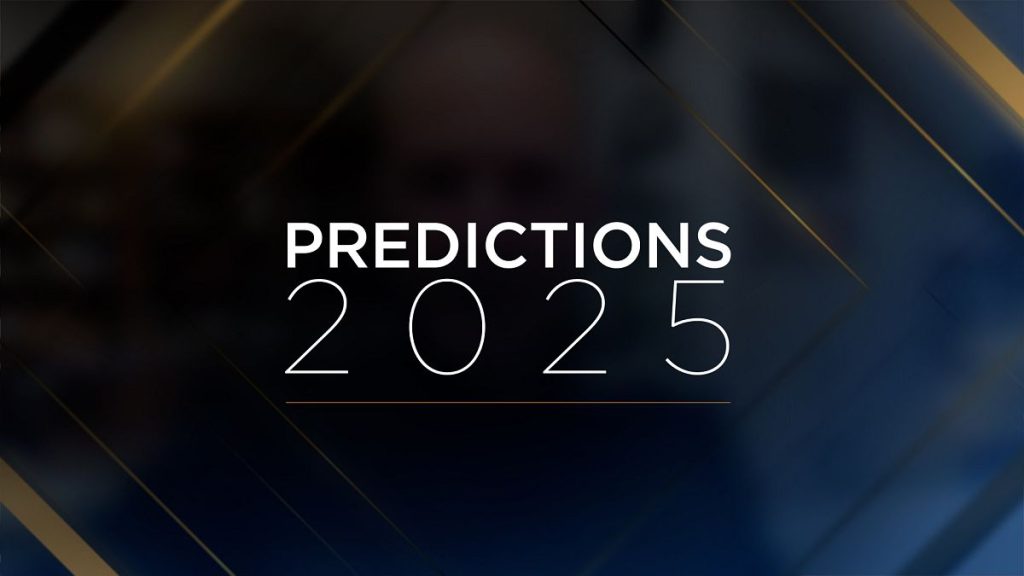The Crossroads of 2025: Predictions and Hopes for a Changing World
As the dawn of 2025 approaches, a chorus of voices from across the globe – explorers, activists, artists, and thinkers – share their perspectives on the year ahead. Their predictions, tinged with both hope and apprehension, paint a vivid picture of a world at a crossroads, grappling with complex challenges and striving towards a better future. The overarching theme resonating through their pronouncements is the profound impact of present actions on the trajectory of tomorrow. This underscores the urgency of addressing critical issues like climate change, social division, and political instability, emphasizing the power of individual and collective choices in shaping a more positive future.
Bertrand Piccard, a pioneering explorer known for his solar-powered flight around the world, eloquently articulates this interconnectedness. He posits that the future of 2025 is not predetermined but rather a direct consequence of the decisions and actions we undertake today. Piccard’s vision highlights the potential for positive change through conscious choices – phasing out fossil fuels for a healthier environment, embracing kindness and compassion for a more harmonious world, and alleviating poverty to mitigate the root causes of conflict. His perspective underscores the empowering notion that we are not passive recipients of fate but active agents in shaping our collective destiny.
This call to action is echoed by Luisa Neubauer, a prominent climate activist, who voices a more cautious outlook. While acknowledging the potential for positive change, Neubauer also foresees a struggle against escalating environmental disasters and a battle for truth in an increasingly polarized world. She anticipates a "mad battle for truth," suggesting that accurate information will become a precious commodity, fiercely contested and manipulated. Despite these concerns, Neubauer also envisions the emergence of "unlikely heroic stories," highlighting the resilience and ingenuity of individuals and communities in the face of adversity. This duality of apprehension and hope underscores the complex landscape of the future, where challenges and opportunities coexist.
Shifting the focus from global issues to the more personal realm of human connection, Belgian musician Doowy envisions a 2025 marked by improved "digital health." He expresses a desire for a shift away from the superficiality of online interactions towards a renewed focus on genuine social connections. Doowy’s prediction reflects a growing awareness of the potential drawbacks of excessive digital engagement and a yearning for more authentic human interaction. This desire for deeper connection underscores the enduring importance of interpersonal relationships in a rapidly evolving technological landscape.
The call for peace and equality resonates strongly in the predictions of Spanish journalist and writer Nieves Herrero. She expresses a fervent hope for the cessation of global conflicts, particularly the war in Ukraine and the conflict in Gaza, emphasizing the devastating human cost of these ongoing struggles. Herrero also aspires for a world where writers can use their craft to promote harmony and understanding, highlighting the power of language and storytelling in bridging divides and fostering empathy. Furthermore, she envisions a future where women are no longer subjected to violence, advocating for a 2025 characterized by equality and respect.
Paul Watson, a passionate advocate for marine life and founder of the Sea Shepherd Conservation Society, directs his predictions towards specific environmental goals. He expresses optimism about ending Icelandic whaling and raising awareness about the slaughter of dolphins and pilot whales in the Danish Faroe Islands. Watson also anticipates increased pressure on Japan to cease whaling, demonstrating a focused approach to addressing critical conservation challenges. His predictions reflect a growing global awareness of the importance of protecting marine ecosystems and the need for concrete action to address threats to marine life.
Finally, renowned filmmaker Wim Wenders offers a broader perspective on the state of the world, expressing concern about the resurgence of nationalism and the fragility of global cooperation. He laments the return of outdated political ideologies and the erosion of the European ideal. Wenders’s observations reflect a growing anxiety about the direction of global politics and the potential for increased division and conflict. His words serve as a reminder of the importance of upholding democratic values and fostering international cooperation in an increasingly interconnected world.
In summary, the diverse perspectives offered by these prominent figures provide a multifaceted glimpse into the potential realities of 2025. Their predictions highlight the intertwined nature of global challenges and the importance of individual and collective action in shaping a more positive future. They emphasize the need for compassion, truth, and genuine connection in navigating the complexities of the 21st century, reminding us that the future is not a predetermined path but a canvas upon which we can collectively paint a more hopeful and sustainable world. The year 2025 stands as a pivotal moment, a crossroads where the choices we make today will determine the world we inherit tomorrow.

